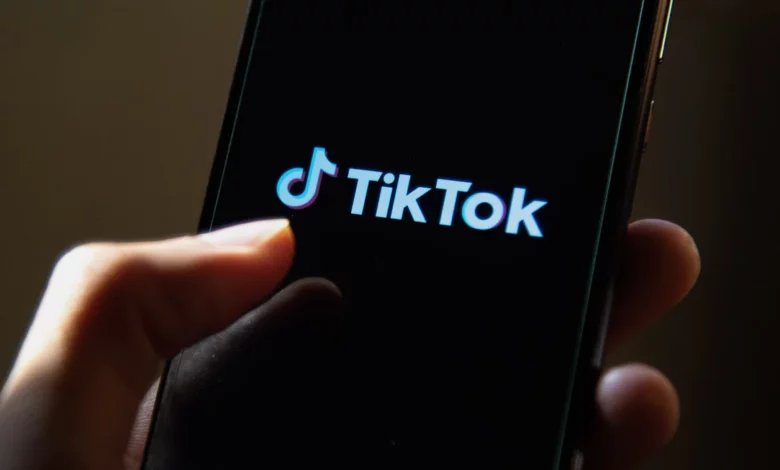Meta accused of ‘massive, illegal’ data processing by European consumer groups
By Anna Cooban, CNN
February 29, 2024

London CNN —
European consumer rights groups have accused Meta, the owner of Facebook and Instagram, of carrying out a “massive” and “illegal” operation of collecting data from hundreds of millions of users in the region.
The European Consumer Organisation (BEUC), an umbrella body for 45 consumer groups, said eight of the groups were filing complaints with their respective national data protection authorities Thursday.
The groups claim that Meta (META) collects an unnecessary amount of information on its users — such as data used to infer their sexual orientation, emotional state or even their susceptibility to addiction — which they are unable to freely consent to.
The company’s practices, the groups argue, breach parts of the European Union’s signature data privacy law, the General Data Protection Regulation or GDPR.
“With its illegal practices, Meta fuels the surveillance-based ads system which tracks consumers online and gathers vast amounts of personal data for the purpose of showing them adverts,” the BEUC said in a statement.
Meta disputes the allegations.
“We take our regulatory obligations extremely seriously, and are confident that our approach complies with the GDPR,” a company spokesperson said in a statement.
“Since 2019, we’ve overhauled privacy at Meta. We’re held accountable for protecting people’s privacy by regulators, policymakers and experts. We work with them to ensure that what we build follows best practices and meets high standards for data protection,” the spokesperson added.
Thursday’s complaints will potentially expose the company — for years the subject of intense regulatory scrutiny in Europe — to yet more legal action.
Last May, EU regulators fined the tech giant a record-breaking €1.2 billion ($1.3 billion) for violating GDPR rules by transferring the personal data of Facebook users to servers in the United States.
According to the European Data Protection Board, the fine is still the biggest-ever levied under the law, which has applied in the EU since 2018.
‘Pay or consent’
In October, EU regulators forced Meta to start asking for explicit consent from its users to process their personal information for the purpose of delivering them targeted advertisements.
Several days later, Meta launched a subscription service allowing its European users to pay up to €12.99 ($14) a month to use ad-free versions of Facebook and Instagram. From Friday, it also plans to introduce additional monthly charges for each new account a user sets up as part of that offering.
Meta has said the service is part of its efforts to comply with the GDPR.
“‘Subscription for no ads’ addresses the latest regulatory developments, guidance and judgments shared by leading European regulators and the courts over recent years,” the company said in a blog post in October.
But the BEUC argued Thursday that Meta’s subscription service offers users “an unfair and misleading choice” as its data processing isn’t transparent, meaning users cannot know how subscribing would change the way their information is processed. Moreover, Meta’s market dominance means that users cannot easily leave its platforms without cutting themselves off from their family and friends.
The organization filed a complaint with European consumer protection authorities in November, arguing that this “pay-or-consent” approach was an example of an unfair and “aggressive” commercial practice prohibited under EU law.
“Meta’s offer to consumers is smoke and mirrors to cover up what is, at its core — the same old hoovering up of all kinds of sensitive information about people’s lives, which it then monetizes through its invasive advertising model,” Ursula Pachl, deputy director general of the BEUC, said in a statement Thursday.
Brian Fung contributed to this article.
By Clare Duffy, CNN
February 28, 2024

Peerapon Boonyakiat/SOPA Images/LightRocket/Getty Images
New York CNN — TikTok’s global trust and safety unit is getting a new leader, the company confirmed on Tuesday.
Cormac Keenan, who has led trust and safety for the social media giant since 2020 from its Dublin, Ireland, office, is stepping back into a strategic advisory role working with the company’s senior leadership team, CEO Shou Chew said in an internal memo to employees Tuesday. Keenan will also serve on the board of the company’s Irish entity.
Following Keenan’s move, TikTok’s global trust and safety unit will now fall under the leadership of Adam Presser, the company’s Los Angeles-based head of operations. However, TikTok’s trust and safety staff will otherwise remain in place as-is, according to the company.
“I want to take this opportunity to personally thank Cormac on behalf of all of us, for his many critical contributions in making TikTok a safe space for creativity and expression,” Chew said in the note to employees, a portion of which was viewed by CNN.
Chew on Tuesday also announced that two other TikTok senior leaders in Europe are leaving the company entirely: Both Theo Bertram, formerly vice president of government relations and public policy in Europe, and Rich Waterworth, general manager of operations who led content efforts in the Europe, Middle East and Africa region, are leaving the company for other opportunities.
The leadership changes come as TikTok continues to face scrutiny in the United States, Europe and elsewhere over the safety and security of its platform.
Chew last month testified before a US Senate subcommittee alongside the heads of other large social media companies about youth safety on their platforms. He faced questions about its investments in trust and safety and about the app’s connection to its Chinese parent company, ByteDance, a link that has spurred national security concerns in the United States and elsewhere.
TikTok plans to invest $2 billion in trust and safety efforts in 2024, Chew said during the hearing.
During his tenure, Keenan oversaw the rollout of a number of new features and policies aimed at addressing such concerns. These include default screen time limits for teen users, the ability for parents to mute their child’s notifications and tweaks to the app’s algorithms to avoid repeatedly serving users videos on potentially problematic topics, such as dieting or sadness.
No comments:
Post a Comment